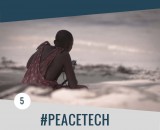Crime and Conflict: The New Challenge for Peacebuilding

Organized crime, long considered a law and order problem, is now becoming part of development policy and other agendas. This shift reflects growing recognition that armed violence and associated fragility related to organized crime require that policymakers and practitioners work across all related sectors: law enforcement and crime prevention, security and diplomacy, development and peacebuilding, and public health.
Designing interventions that draw on the scope of skills and approaches of peacebuilders is critical to a new generation of crime responses. Several areas are especially important:
- Rounded conflict analysis of the nexus of organized crime, armed violence, and fragility in any given context, understanding the political economy, and differentiating among root causes, proximate causes, and triggers will help inform more holistic responses.
- Often initiated, facilitated, and sustained by impartial or expert third parties, dialogue on conflict issues will incorporate and empower the actors involved in and affected by the problem to generate solutions together.
- Lasting solutions — despite the tendency of traditional law and order approaches to exclude civil society perspectives — will be found in civic activism and empowerment.
International Alert’s research in Rio de Janeiro, the Mano River Union countries of West Africa, and the Philippines, points to five priority areas for addressing organized crime and fragility:
- Ensuring ‘do no harm’ law enforcement. Learning from experiences in which law enforcement led
to an increase in violence is critical. Conflict-sensitive approaches would enhance this effort. - Improving analysis and information flow. Enormous knowledge gaps remain, particularly in the public realm. Greater analytical purchase across all global, national, and localized dimensions will facilitate better monitoring of the impact of policy responses.
- Dealing with predatory power holders and the link between organized crime and politics. Current state-building approaches require a deeper understanding of the role of predatory power holders. Steps can be taken to narrow the boundary between crime and politics as well as encouraging experiences of factoring criminal agendas into peace negotiations and processes.
- Tackling crime incentive structures, including widening inequality. A better understanding of why individuals are drawn into crime is imperative. Targeted livelihood opportunities for at-risk populations as a direct response is one potential area of focus.
- Disrupting globalized market structures. Developed countries that receive and consume illegal goods need to address their side of the problem as much as producer and intermediary countries need to deal with theirs. The debates are detailed and complex. Meaningful reflection has begun but must accelerate if transformation of the difficult issues at hand is to be achieved.
Adapted from Jessie Banfield, Crime and Conflict The New Challenge for Peacebuilding (London: International Alert, 2014).

